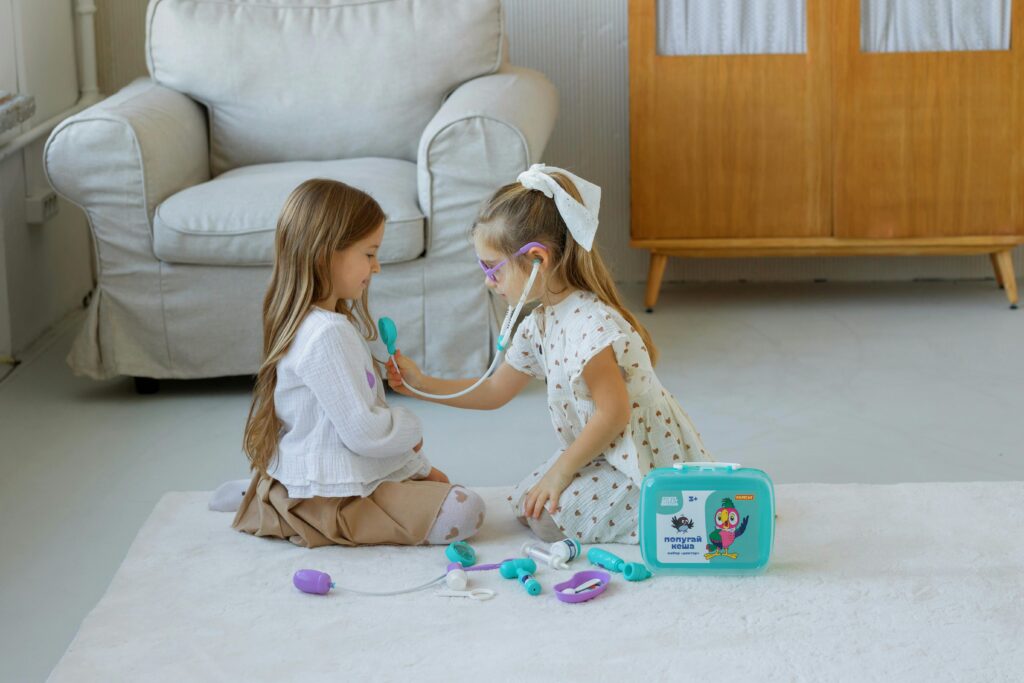Why PRETEND?
It is known that children with PWS may face challenges when making and sustaining friendships, understanding emotions, and acting appropriately in different settings. In recent research, play-based interventions focusing on pretend or imaginative play have been shown to facilitate and improve many of the skills utilized during these activities in children with Prader-Willi Syndrome.
We are focused on improving play intervention for children. Using pretend play can be a fun and therapeutic method of improving social cognition and assimilating important skills into daily life.
The Play-Based Remote Enrichment to Enhance Development Program or PRETEND, is an innovative intervention designed for children with Prader-Willi Syndrome (PWS) and their families.
PRETEND’s primary objective is to aid in the development of social-cognitive skills in children with Prader-Willi Syndrome (PWS) through remote play intervention. Additionally, we hope to increase families’ accessibility through the use of remote intervention. The PRETEND Program Resource Platform includes asynchronous training modules for both parents and their chosen play facilitators to learn the skills necessary to deliver and reinforce intervention through pretend play.

Want to learn more?
Connect to our lab website here.
Or contact us: The Neurodevelopment Research Lab
Bringing PRETEND To You!: A Pilot Pretend Play Study for Children with Prader-Willi Syndrome
About: The Neurodevelopment Research Lab at Case Western Reserve University is running a pilot study on a novel delivery method of pretend play for young children with PWS, using the PRETEND Program Resource Platform.
What is involved?: Participation involves completion of the PRETEND Program with a local play facilitator (chosen by the family). The play facilitator will complete training to build a foundation of knowledge on proper play implementation, then deliver the intervention over the course of several weeks. The parent will follow along with designated training to learn more about how to reinforce positive play strategies at home.
Before and following the intervention, families will complete questionnaires and brief assessments targeting different aspects of developmental and daily functioning.
Who can be a play facilitator?: Good question! A play facilitator is someone of the parent/guardian’s choosing – typically someone with previously established rapport and someone your child feels comfortable with. Please see our Choosing your Play Facilitator guidelines to help you with the decision process!
Can I participate?: You may be eligible to participate if you are a parent/guardian of a child ages 18-60 months (3-5 years) old, with a confirmed diagnosis of Prader-Willi Syndrome (PWS). Parents are encouraged to think about a local invidividual in the child’s life who is capable of implementing the play intervention with their child, with 20-30 minute sessions typically 2x/week.
